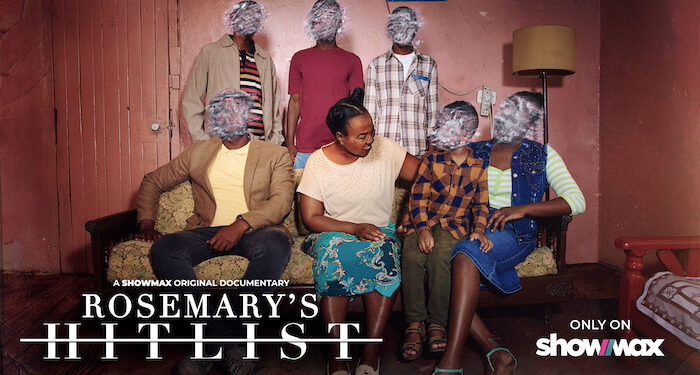According to a 2022 poll by YouGov, half of Americans say they enjoy true crime content, and one in three say they consume it at least once a week. South Africa may not be at that level yet, but we’re fast heading in that direction.
The 2021 release of Devilsdorp, the first true crime Showmax Original, felt like a tipping point. Local true crime is not new: Carte Blanche has been a Sunday night institution since 1988, while Huisgenoot: Ware Lewensdramas, which looks at different true crimes each episode, and Griekwastad, a fictionalised film based on a real-life farm murder, had both been popular on Showmax.
But despite our high crime rates, and the endless conversation surrounding them, prestige local true crime miniseries is a relatively untapped market. South Africa had never released an in-depth, high-profile, multi-episode true crime documentary series like Devilsdorp before.
In 2016, a spate of brutal ‘Appointment Murders’ gripped the town of Krugersdorp, leaving salespeople and consultants terrified to book meetings in case they were the serial killer’s next victims. The investigation led detectives to a series of unsolved cold cases, the so-called ‘Satanic Murders’, and to links between 11 Krugersdorp killings between 2012 and 2016. They discovered these were the work of the Electus per Deus (Chosen by God) cult.
“The result of an 18-month research process, Devilsdorp shows again that truth is stranger than fiction, especially in South Africa,” said director David Enright in the launch PR for the trailer.
“This is the story of the events that rocked an entire community and forever changed the lives of those involved, especially the families of the victims. What started as a group of devout Christians trying to help a former Satanist escape the Satanic church ended in a murderous spree involving a killer mom, her two children, and a cult with more victims than members. It may all sound too far-fetched to be believed, except it really happened – just down the road from us.”
[WATCH: Devilsdorp trailer here]
Showmax brought true crime closer to home for South Africans, and the response was immediate. At the time, Devilsdorp set the record for the most first-day views of any Afrikaans content on Showmax ever, as well as the record for the most views in four-days of any content on Showmax ever. It ended the year as the most-watched Afrikaans title of 2021 on Showmax, and one of the 10 most watched overall. [Ed’s note: As of 5 July, Rosemary’s Hitlist broke the Devilsdorp and Steinheist records on Showmax.]
The companion podcast, made in partnership with True Crime South Africa, similarly went to #1 on Apple podcasts and #2 on Spotify. The resulting media frenzy saw over 450 features in earned media, including 20 on News24 alone, and another seven just on Cape Talk.

A growing hit list
It was only a matter of time before Showmax leveraged on this success and released more true crime drama. Steinheist arrived just over a year later, switching the focus onto the biggest corporate scam in South African history.
On 6 December 2017, Steinhoff’s share price plunged by 90% in a week, wiping over R200 billion off the Johannesburg Stock Exchange – and ordinary South Africans’ pensions and investments. As director Richard Finn Gregory puts it, “Nkandla seems like small change in comparison.”
This collapse followed the resignation of CEO Markus Jooste amid an investigation into accounting irregularities.
Steinheist is a three-part Showmax Original investigation into the saga, which set a new record for the most first-day views of any documentary series on Showmax – and went on to top the Showmax Top 20.
[WATCH Steinheist trailer here]
This year, Showmax has already released the heart-breaking Stella Murders, the true crime anthology series Imibuzo, and the award-winning Zephany Nurse documentary Girl, Taken, among others.

Rosemary’s Hitlist premiered in June, with another two true crime Showmax Originals scheduled before the end of the year.
Rosemary’s Hitlist is the story of cop-turned-serial-killer Nomia Rosemary Ndlovu. On 12 October 2015, Ndlovu’s live-in lover, Yingwani Maurice Mabasa, the father of her only living child at the time, went missing. Three days later, his body was found in Olifantsfontein, with 76 stab wounds. Mabasa had 16 policies in his name, totalling over R400 000 – and Ndlovu was the beneficiary of each…
These weren’t the first pay outs from suspicious deaths to Ndlovu. She was eventually sentenced in 2021 to six concurrent life terms for the murders of not only Mabasa, but also five family members: her sister, two nephews, a niece and a cousin. Together, their ‘killsurance’ was worth over R1.4 million to Ndlovu.
[WATCH Rosemary’s Hitlist trailer here]
There will be even more true crime on Showmax in 2024, with a slate that will raise more eyebrows than even the Thabo Bester story has. The genre is growing elsewhere too: M-Net premiered Cold Blood: The Violent Crime Cases of Mike Bolhuis in May 2023; kykNET premiered Onthul: Kragreus op sy Knieë, about Eskom, in April 2023; and VIA released Die Valke, about The Hawks, in March 2023, to use just three recent examples.
In line with global trends
This is in line with international trends. While records of the telling of true crime stories date back hundreds of years, forerunners of the current wave include Truman Capote’s 1966 classic In Cold Blood, and the 1988 Errol Morris documentary Thin Blue Line.
Arguably, the genre came of age with the first Serial podcast in 2014, and then The Jinx: The Life and Deaths of Robert Durst on HBO and Making a Murderer on Netflix in 2015.
Demand has been speeding up ever since, helped along by mega hits such as Tiger King, which was almost as talked about as Covid-19 in 2020.
In 2021, Parrot Analytics reported that the documentary genre as a whole had become the fastest-growing segment of the streaming industry, with the number of series growing 63% between January 2018 and March 2021. They added that true crime was not only the biggest documentary sub-genre, but that it was also growing faster than nearly any of the others.
It’s not a coincidence that the rise of true crime has coincided with the rise of streaming. When your viewers are innocently channel-hopping, they have a right to complain when they see unwanted or disturbing content.
But on streaming services like Showmax, we give our audience complete control over what they do and don’t want to watch, with all our content rated according to the FPB classification guidelines so that when you click play, you know what you’ve signed up for.
Survival instinct – or innate curiosity?
But why is true crime so popular right now? Why, as this Saturday Night Live skit shows, do we, and women in particular, find it relaxing to watch stories about our deepest fears; about the worst things that could happen to us? It’s rather counterintuitive, really.
There’s no single answer, but there are lots of theories.
Evolutionary psychologists say that understanding the threats around us has always been key to our survival, so wanting to learn “how could I avoid this?” is hardwired into us. And even if the worst-case scenario is unavoidable, by watching, we are preparing ourselves to face whatever comes.
True crime also feeds our innate curiosity; we love piecing together clues and solving puzzles, whether it’s whodunnits, whydunnits, or howdunnits. The why is an ongoing puzzle: is there ever a satisfying reason for why one person becomes a killer, and another doesn’t? What drives seemingly ordinary people to cross the ultimate moral line?
True crime can also make us feel good about ourselves, both on a “I would never be that stupid” and “I would never do that” level.
There are many more reasons for our fascination with the subject.
You don’t get much higher stakes than life and death. There’s something life-affirming about facing death, about realising that tomorrow is not guaranteed. There’s something reassuring when killers are caught, and justice is served. There’s something alarmingly relatable about seeing how vulnerable the human psyche is to manipulation.
There’s something cathartic about watching other people grieve, and grieving for them; often it gives us the space to grieve for ourselves at the same time. A good cry usually helps, and I think most South Africans need a good cry right now. And when you watch these kinds of stories, and go on their rollercoasters with them, you need to talk about them immediately afterwards to process, which drives word of mouth.
Beyond the headlines
In South Africa, where to varying extents we still often live in segregated communities, true crime also plays into our voyeurism, giving us rare glimpses into our neighbour’s cultural and social norms. Devilsdorp’s audience reached far beyond Krugersdorp or even white Afrikaners: black Twitter had a field day with the series.
Interest in true crime has also been shaped by our shortening news cycles and attention spans, where we are consuming breaking news in smaller and smaller bites, leaving substantial, unsettling gaps in our narratives. True crime takes pre-popularised topics and then explores them in more depth, usually with the benefit of hindsight – making sense of the disturbing headlines that once threw us emotionally.
Whatever the many reasons for true crime’s popularity, keeping up with the rising demand is challenging, as we’re dealing with real life, where you never know the timeline, let alone the ending.
Making true crime drama is complex, and an ethical minefield. Sometimes people who agreed to tell their stories change their mind. Sometimes things that initially look like conspiracies aren’t. Sometimes there aren’t any sensational twists after all. Sometimes looking into the abyss takes an emotional toll on the filmmakers as well as the interviewees. Sometimes Twitter’s response to the victims is more disturbing than the original crime.
Initially true crime was always about the crime and the murderer, but it’s important to also give the victims back their voices. Sometimes you wonder: is it fair to ask someone to relive this?
Talking is powerful. Having someone listen is extremely powerful. There is something truly profound that happens when experiences are shared, even – and maybe especially – if they’re the dark and disturbing kind.
Is Showmax doing a Thabo Bester documentary
We’ve seen, over and over, the positive impact our interviews have on the people sharing their stories.
In many ways, the victims are the most important pieces of the puzzle for us, because they represent our audience: they are the people our audience will relate to the most, as ordinary people.
This is all leading up to the mystery I know the whole of South Africa wants me to solve: is Showmax making a Thabo Bester documentary? We’ve never had so many questions, or so many submissions on this issue, so we’re working on a tender process.
So watch this space. At Showmax, we want to make content that speaks to what ordinary South Africans talk about on a daily basis. That includes crime. Sadly, we have too many true crime stories to choose from in this country, but hopefully in telling them, we can start to heal and learn to spot the warning signs early enough to begin to lower that notorious crime rate.
A Showmax true crime starter kit
Local classics
- Devilsdorp
- Steinheist
- Girl, Taken
- Rosemary’s Hitlist
- Stella Murders
- Imibuzo
- Die Staat Teen
- Huisgenoot: Ware Lewensdramas
- Huisgenoot Ware Lewensdramas: Vlees & Bloed
- Outopsie
- Op Seer Se Spoor
International classics
- The Jinx: The Life and Deaths of Robert Durst
- The Vow – Showmax
- I Love You, Now Die: The Commonwealth v. Michelle Carter
- I’ll Be Gone In The Dark
- McMillions

Nicola van Niekerk is head of premium content and co-productions for MultiChoice.















